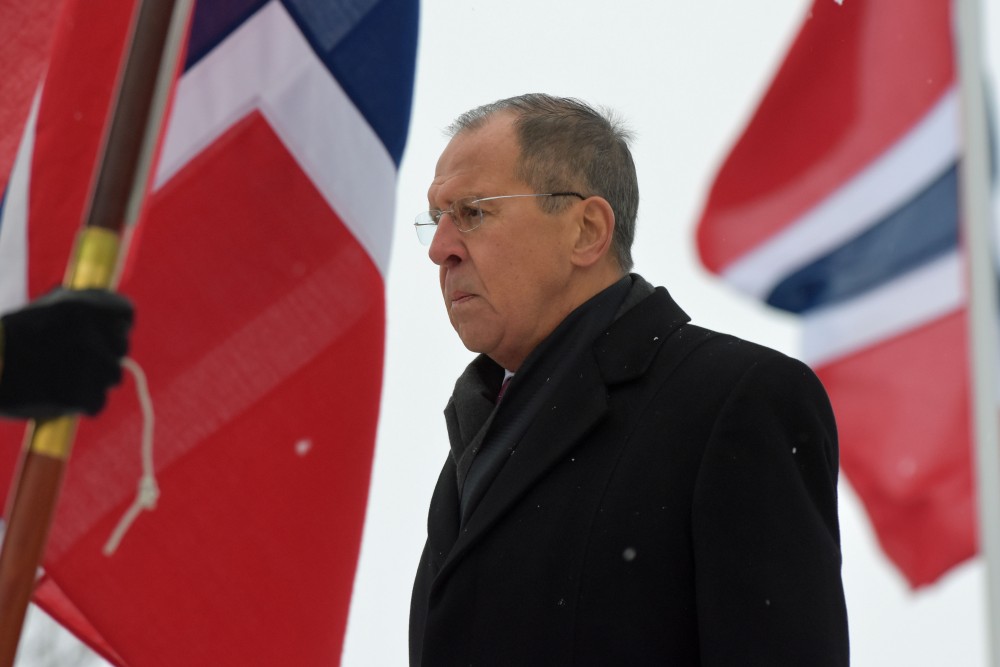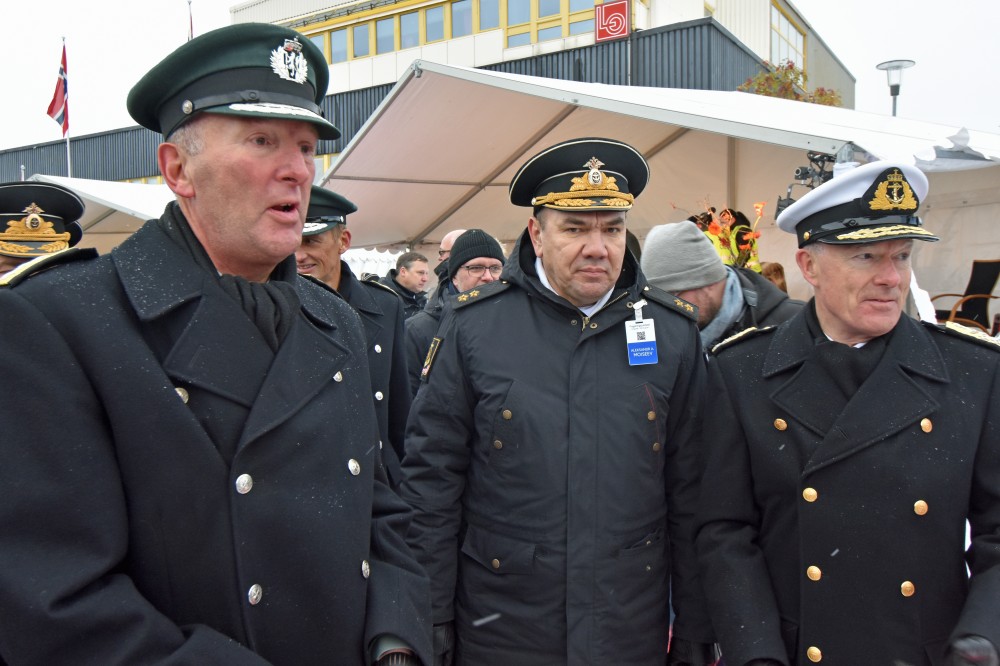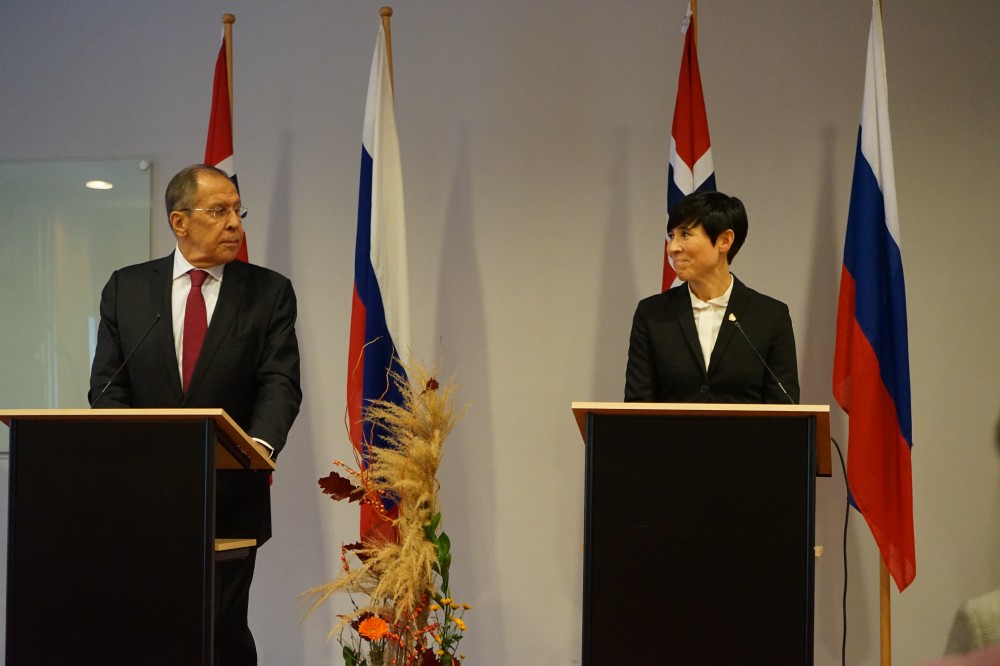Lavrov sees Norway as possible bridge builder between Russia and NATO
During a visit to Kirkenes in Northern Norway, Russia's foreign minister expressed optimism for continued peace, despite recent military build-up in the region.
Lavrov had bilateral talks with his Norwegian counterpart Ine Eriksen Søreide as they both were in Kirkenes to commemorate the 75th anniversary of the liberation of Finnmark by Soviet troops in October 1944.
Before landing at Kirkenes airport, the press department of the foreign ministry in Moscow published a list of talking points in regard to the visit.
“NATO allies are using Norway’s territory increasingly more often,” the statement said and continued: “Norwegian authorities have actually abandoned its commitment to the principle of non-deployment of foreign troops in the national territory in peacetime. More and more military exercises and drills are being held ever closer to Russia’s land and sea borders.”
Being welcomed with a big smile by Norway’s foreign minister Ine Eriksen Søreide in the snow-covered landscape, NATO was not first on Sergey Lavrov’s agenda.
The two were shown the World War II exhibit at the local borderland museum. Liberation of Finnmark from Nazi occupation by Soviet forces in 1944 has intransient significance for cross-border relations in the northeastern corner of Norway.
Talking security, building confidence
The meeting between the two foreign ministers was closed for outsiders, but at the press conference shortly after the parties made no secret that talks had been about increased security tensions up north.
“We do also agree to continue the dialogue on questions where we not necessarily agree, in particular the security policy in Europe and our near neighbourhood,” Ine Eriksen Søreide said and went directly to the heart of the matter.
“We don’t have foreign bases in Norway, but we have allied training as part of the defence concept we have had since 1949,” said Ine Eriksen Søreide.
“We are satisfied with those assurances,” Lavrov followed up at the presser.
Norway was a founding member of NATO and its refusal to host NATO bases from the beginning stemmed from the delicate balancing act to pursue as a Western ally having direct border in the north to the Soviet Union’s huge military powers on the Kola Peninsula.
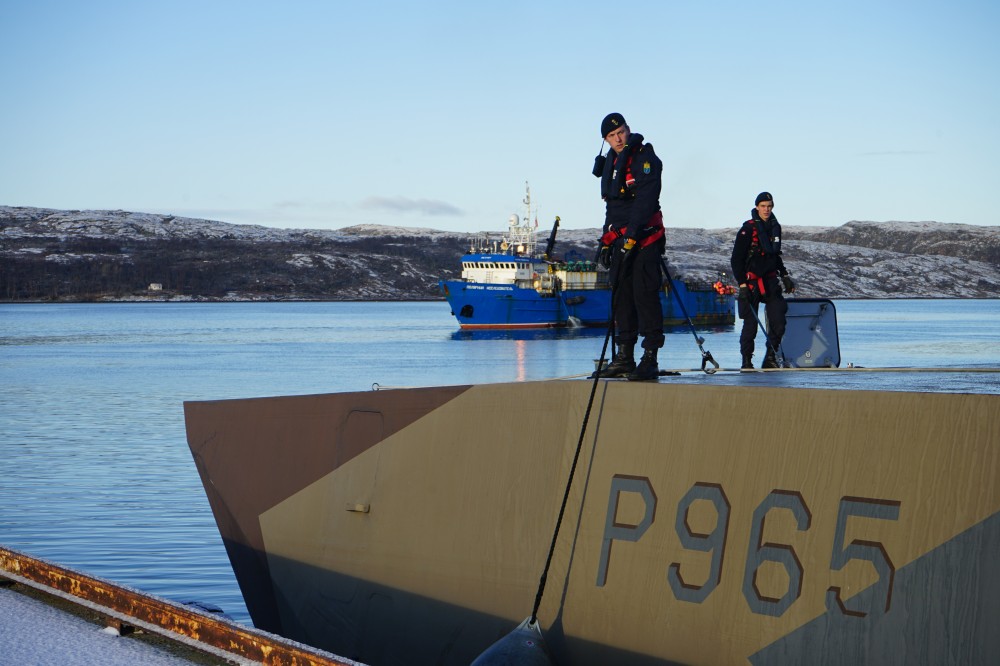
In recent years, however, American and British forces have increased their presence with more soldiers and more training at both Værnes airport outside Trondheim in southern Norway and the army’s traditional stronghold in Troms, inside the Arctic Circle.
Consequently, Moscow blamed Norway for leaving its base-policy by establishing training bases for military forces from the United States and Great Britain.
[British attack helicopters arrive for winter exercise in Northern Norway]
“From our meeting today we agree to continue the cooperation despite some existing disagreements,” Sergey Lavrov said.
He said Eriksen Søreide during the talks confirmed that Norway will keep its base politics creating good conditions for security in the north.
Russia’s foreign minister underlined that bilateral relations are good, as well as multilateral cooperation within the Arctic Council and the Barents Council.
Norway took over the chair of the Barents Council from Sweden earlier in October.
Ukraine
The two foreign ministers discussed the situation in Ukraine. In regards to what Lavrov names the “state coup” in Ukraine, he said “some western countries encouraged the coup and some simply accepted it.”
“This lack of interference by our partners in the west caused that neo-Nazis get a stronger foothold in Ukraine,” Lavrov said.
Norway’s and the EU’s sanctions against Russia are due to the annexation of Crimea and the war in eastern Ukraine. Moscow, however, claims the sanctions to be of an anti-Russian character.
Celebrating the Soviet army’s liberation of Finnmark, though, no mentions were made to the fact that many of the soldiers in the Petsamo-Kirkenes operation in autumn 1944 consisted of ethnic Ukrainians and soldiers from other Soviet republics.
Northern Europe
Asked about his views on Norway’s increased defense spending, the Russian foreign minister first answered diplomatically.
“When we discuss issues, we do not strive for complete satisfaction. In the course of human life, complete satisfaction is impossible.”
He continued:
“We discussed what happens in northern Europe and we questioned NATO activities on Norwegian territory. First of all because we are neighbors and this militarization of the Arctic creates security challenges.”
Asked about his own country’s military activities near the border to Norway, Sergey Lavrov underlined that Russia has never planned any aggressive acts against Norway and has not deployed any forces that pose a threat to Norwegian security.
It’s clear that it is not Norway as such that concerns Moscow, but NATO.
Ine Eriksen Søreide on her side, expressed concern about the Russian navy’s Ocean Shield large-scale drill off the coast of northern Norway in August. “It was the largest exercise since 1985,” she said.
American nuclear subs
“Again, we are concerned about how NATO strengthens its position in Norway, both quantitative and qualitative,” Lavrov said.
He pointed to modernization of air bases for NATO forces and port facilities aimed for American nuclear submarines.
The Barents Observer has previously reported about Russia’s massive rearmament of the Kola Peninsula and published a comparison map of naval ports on each side of the border.
Military-to-military
For Norway, the events in Kirkenes on Friday got top priority. Both King Harald and Prime Minister Erna Solberg were present. So were the top brasses of the Armed Forces.
Although NATO and Russia have maintained very little contact after Moscow’s annexation of Crimea in 2014, top military officers from Norway and Russia were sitting side-by-side at the ceremony in Kirkenes to commemorate the liberation of Finnmark 75 years ago.
The Russian delegation included high-ranking officers from the Northern Fleet, including Commander Vice-Admiral Aleksandr Moiseyev.
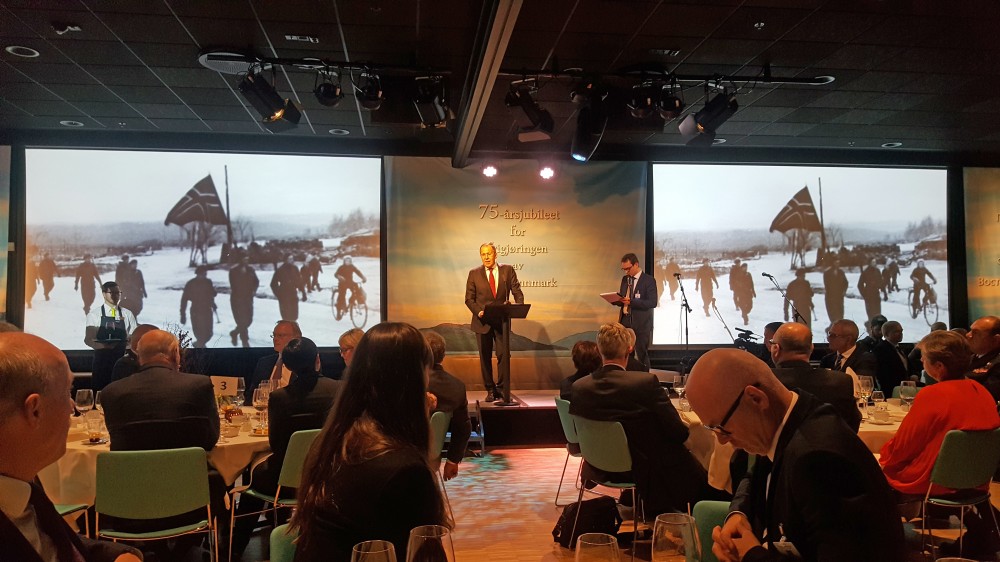
After medals were given to both a Norwegian and a Russian World War II veteran at the government’s official lunch, Lavrov took spontaneously the floor.
“I want to express my deep thanks to Norway for the events here today,” the minister said. He then continued by praising Norway’s role as a peace negotiator around the world.
The tense situations we see are caused by the global security situation, Lavrov argued.
Looking at the Norwegian hosts, the Russian foreign minister said “We have disagreements, that is no secret, but we can always say to each other what we are thinking.”
“Today’s events were very touching. Seeing that Norway’s top leaders are participating strengthens our relations.”
“We have no doubts. When European countries are rebuilding the security architecture, we think Norway will stand first in the line.”
“There is nothing that hinders Norway to take a lead in building bridge between Russia and NATO,” foreign minister Sergey Lavrov said.
